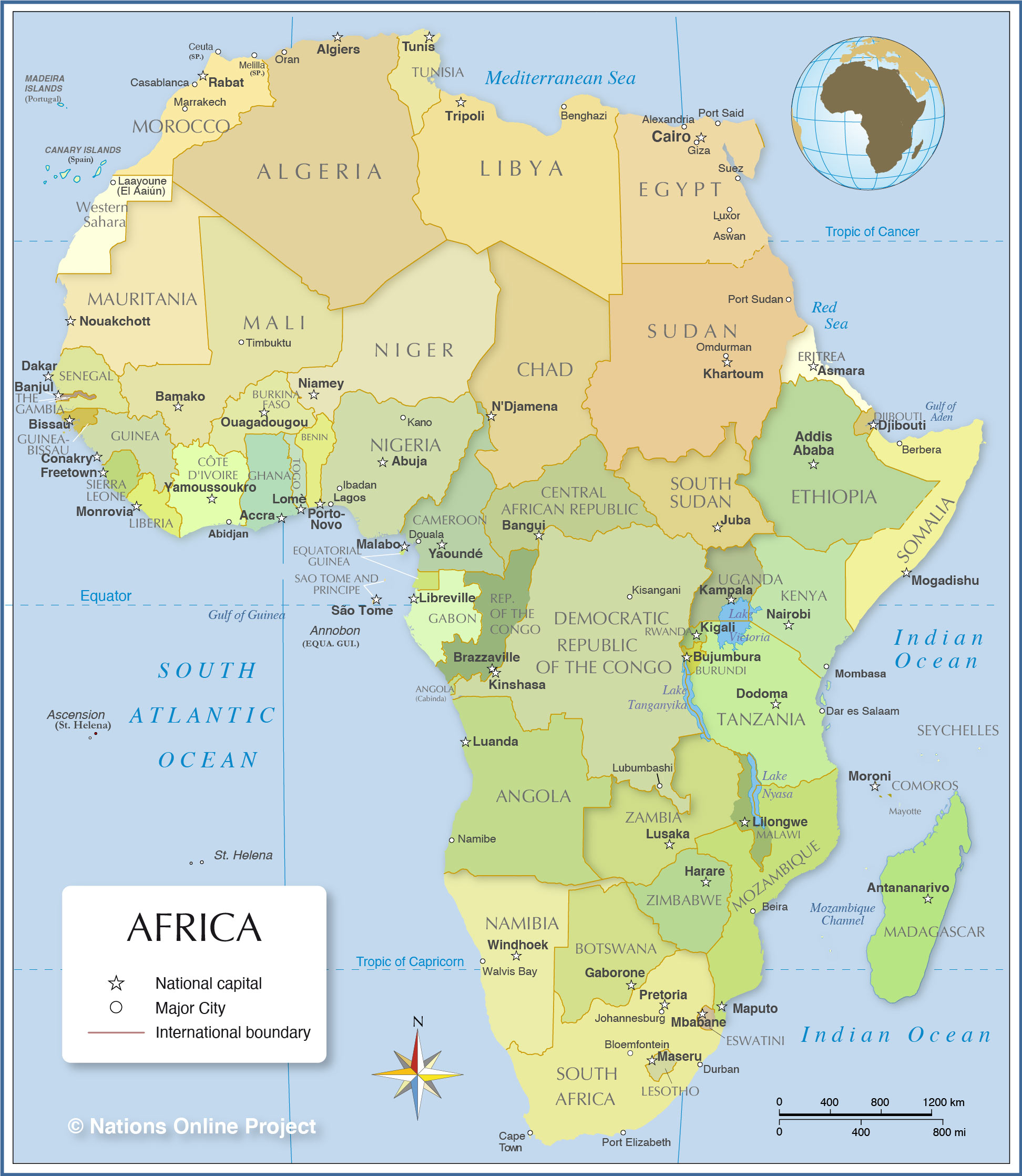Concluding Currents: Reflecting on the Tides of Water and Politics
Happy New Year! As we draw this blog series to a close, it’s time to reflect on the intricate and profound interplay between water and politics in Africa, a journey that has taken us through the continent's rich history, its current challenges, and the outlook for its future.
We started our journey with the surprising revelation of the Sahara's lush past, illustrating the dramatic transformations that landscapes and their resources can undergo. This led us into the present-day reality of water in Africa - a vital, yet often inaccessible, resource. The situation is exemplified by the tensions surrounding the Nile River, a lifeline for millions and a flashpoint for geopolitical strife.
Our exploration of Africa's colonial past revealed the deep-seated roots of many contemporary water challenges. Figure 1, map of Africa, poignantly showcases the continent's colonial legacy through its distinct, straight-lined boundaries. The enduring legacy of colonialism has left a marked imprint on the continent’s water politics, particularly in the form of urban-rural disparities in water access and infrastructure.
The dual nature of water as a catalyst for both conflict and cooperation emerged as a recurring theme. Managing transboundary water resources in Africa is a delicate balancing act, requiring cooperation, equitable resource sharing, and innovative governance. The Nile River disputes and the challenges of shared basins like the Zambezi and Congo have highlighted the need for collaborative approaches that transcend national boundaries.
The discussions at COP28 brought to light the urgency of addressing water issues in the context of climate change. Initiatives aimed at preserving freshwater systems, funding water security, and enhancing urban water resilience are commendable steps forward. However, these initiatives also underscore the immense challenges ahead, particularly in ensuring effective implementation across diverse African landscapes and societies.
 |
| Figure 1. Map of Africa |
In summing up this series, it becomes clear that water in Africa is much more than a physical resource; it is a central element in the continent’s socio-political landscape. Its management is intertwined with a myriad of factors - historical, cultural, socio-economic, and environmental. The future of water management in Africa lies in recognising these complexities and addressing them through integrated, inclusive, and sustainable strategies.
This final blog post marks not an end, but a continuation of the dialogue on water and politics in Africa. The challenges are substantial, but so are the opportunities for innovation and collaboration. The lessons learned and the insights gained from Africa's experience are valuable not only for the continent but for the global community as we all face the increasing challenges of water management in a changing climate.
Thank you for joining me on this journey. As we part ways, let's carry forward the understanding that water is more than a resource; it's a lifeline that connects us all, demanding our respect and collective effort towards a sustainable and equitable future. Stay informed, stay engaged, and continue to be part of the solution for water management in Africa and beyond.

Comments
Post a Comment